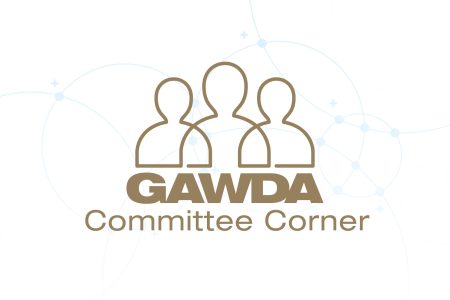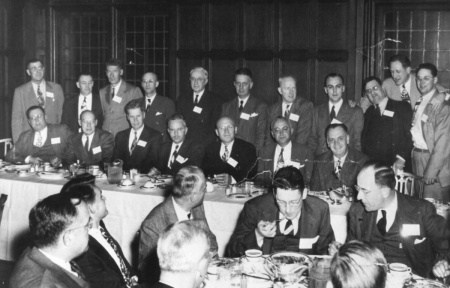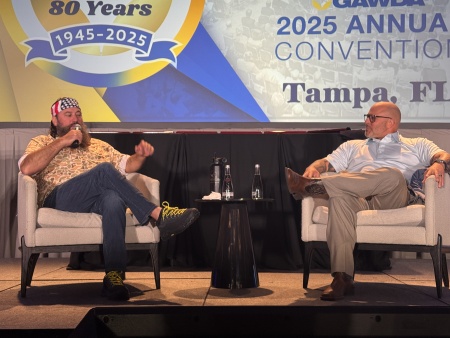CGA and GAWDA recently partnered again to host the 3rd annual Young & Emerging Professionals Summit. Sponsored by Weldcoa, this year’s program featured a series of eight technical webinars which followed air gases from production to end use.
More than 700 industry professionals joined us for the Summit, which has gained a reputation as a one-of-a-kind technical training event. The sessions, which included presentations, case studies, and panel discussions, were led by 25 industry subject matter experts.
Throughout the Summit, one point became abundantly clear, prioritizing the development of young and emerging professionals doesn’t just benefit CGA and GAWDA – it brings substantial value to the individuals, their companies, and the industry as a whole.
Developing Our Future Industry leaders
Transferring Knowledge
Young and emerging professionals who participate in CGA and GAWDA get access to a lot more than meetings and social events. They have a unique opportunity to grow their technical knowledge and their overall understanding of the industry while interacting with subject matter experts. Sharing our industry’s tribal knowledge – the hard-learned lessons and resulting changes to best practices – is essential to maintaining our safety culture. This isn’t information that can be found in a standard operating procedure or explained in a publication. It comes out as our committees discuss the rationale for requirements in our publications, and in presentations at our safety seminars. Having the next generation at the table provides a chance for knowledge transfer that doesn’t often happen in other venues.
Peer Networking
The participants in our programs also build a network of contacts including peers, technical experts, and leaders. In an industry as specialized as ours, having these contacts brings tremendous value for employees at all experience levels: members support each other in emergencies, individuals reach out to industry peers for help with troubleshooting, and contacts are made with key decision makers. And beyond all of this, a sense of community is created, and our next generation is more likely to stay in this industry because they feel connected here.
Building Soft Skills and Leadership
There is practical value to getting individuals involved, too. Engaging in a committee setting is a great way to build soft skills and leadership experience. Our young and emerging professionals take on leadership roles, manage projects and events, gain experience with presenting and communication, learn to manage group dynamics and effective meetings, and more. Participation in CGA and GAWDA gives participants an avenue to learn transferable skills that can bring immediate value back to their organizations.
The Business Case for Supporting Young Professionals
Beyond the potential growth opportunities for individuals who engage in CGA and GAWDA young and emerging professionals programs, there is a significant value proposition for their employers. Some aspects are easily recognized – particularly the ability to have a voice in the work that CGA and GAWDA are taking on, the take home value of the technical content in our meetings and events, and access to the resources that both organizations provide for members.
But there are some less obvious benefits, too.
Prioritizing development of young and emerging professionals allows an organization to position itself in a competitive talent environment. It creates opportunities to invest in the development of internal personnel instead of having to buy that talent in the future. A recent Gallup poll indicates that 69% of Millennials are concerned that their workplace does not develop their leadership skills; yet developing the next generation of leaders is viewed as a top challenge by many executives.
A significant body of research clearly indicates that young professionals who feel invested in, who feel like part of a community, and who have access to mentors are significantly more likely to stay with an organization long term.
According to a case study at a Dutch multinational human resource consulting firm, employees who participated in mentoring programs were 49% less likely to leave and another study found that over 79% of Millennials see mentoring as crucial to their career success.
Clearly, the investments we are making in our young and emerging professionals is key to growing and retaining a strong pipeline of future talent..
These investments have clear business implications, too. As young and emerging professionals form their peer networks, they are connecting with industry leaders and decision makers of today and tomorrow. As Sallie Krawcheck, the former head of Bank of America’s Global Wealth and Investment Management division and current CEO and co-founder of Ellevest, says, “Networking has been cited as the number one unwritten rule of success in business. Who you know really impacts what you know.”
Bringing Value to the Industry
When we talk about young and emerging professionals, we often focus on the future of this group and what they will accomplish years from now. The reality is that investing in our young and emerging professionals isn’t a gamble on some future return for the industry. They are creating an impact today.
Over the past several years, this group has made us rethink the way we engage people in our work. How we present events, and how they can be more accessible to a growing audience.
They’ve asked us to tackle tough topics and pushed back on the idea of doing things the way we’ve always done them. And in doing so, they’ve driven a new wave of ideas and enthusiasm into our organizations.
Our young and emerging professionals are also actively looking for ways to give back to the industry. They’re developing events that are relevant at all levels of the industry including our committee showcases, leadership webinar series, and more. They often volunteer to help with special projects outside of core committee work – like transitioning CGA’s Handbook of Compressed Gases to an online tool – and they’re bringing new and exciting perspectives to the standards development process.
Building Momentum
As we connect with new young and emerging professionals in our industry, we’re learning more about the challenges they’re facing when it comes to getting involved in CGA and GAWDA. There are several common themes in their responses, including:
- I just don’t know how to get started. What committees are there? How do I join?
- I don’t feel like I have enough expertise to bring value to the discussions.
- Getting involved alone is really intimidating.
- The value of participation is not clear.
The most important tool in our grasp for reaching new participants, and addressing the concerns raised above, is to start talking about organizations like CGA and GAWDA internally.
So, what can you do?
- Invite a young professional to join you at a meeting or encourage them to step into an area that they’re passionate about.
- Talk about your experience with these organizations and what you’ve gotten out of your participation.
- Create space at the table for someone to join the discussion in a learning capacity – and encourage them to ask questions and challenge ideas.
We’re continuing to innovate when it comes to our educational programs, and we are already looking forward to the 2024 Young & Emerging Professionals Summit. We hope that you will join us in building the future of our industry by creating pathways for the young professionals in your organizations to get involved.











